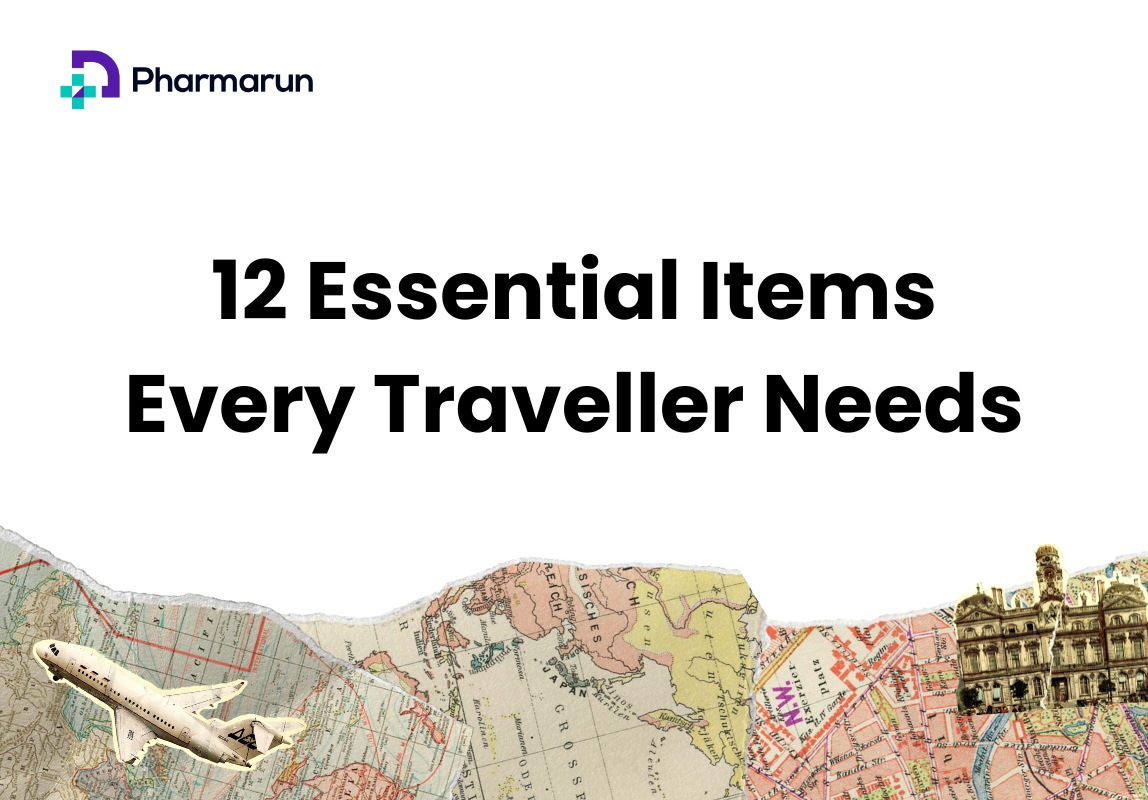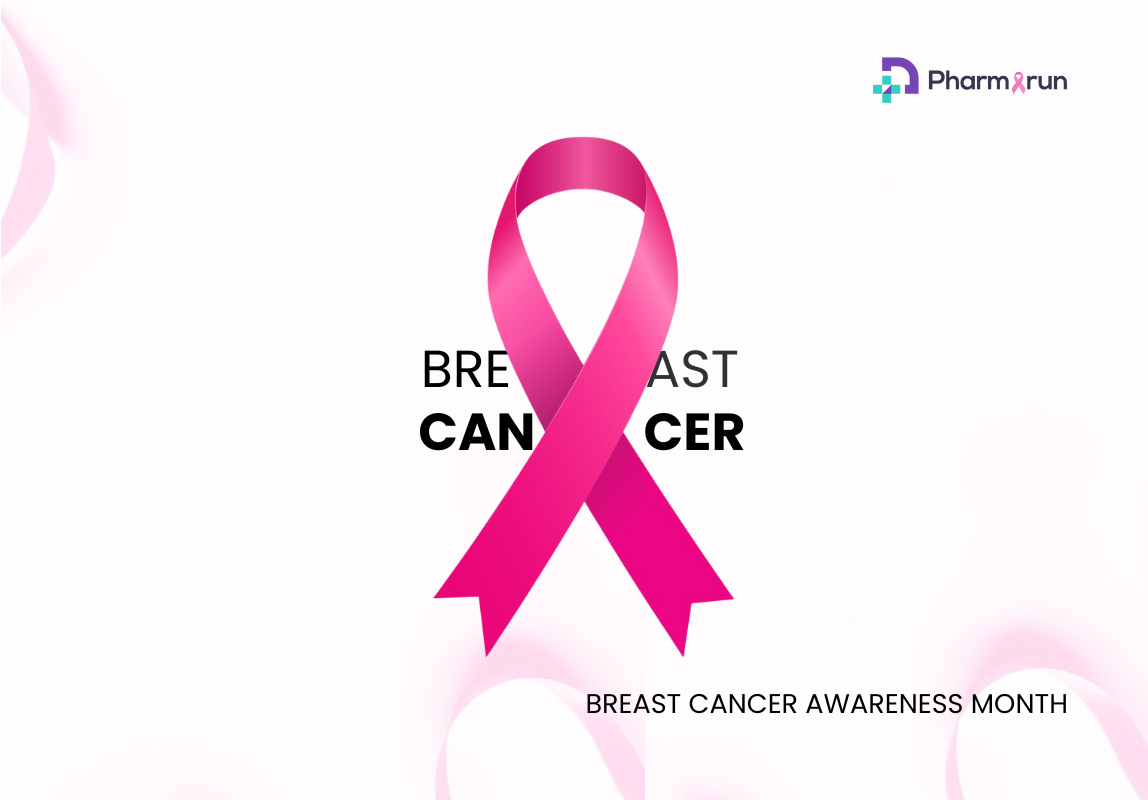Effective Hemorrhoid Relief: Expert Tips for Treatment and Prevention | Pharmarun
.png)
Hemorrhoids, also known as piles, are a common yet often misunderstood condition affecting millions worldwide. Characterized by swollen veins in the lower rectum and anus, they cause a range of symptoms from mild discomfort to significant pain, affecting day to day activities.
Hemorrhoids are akin to varicose veins, where increased pressure in the lower rectum leads to vein swelling and bulging. They can occur internally within the rectum or externally around the anal opening, each bringing its own set of symptoms and challenges. Internal hemorrhoids might go unnoticed due to their painless nature, External hemorrhoids on the other hand can cause significant discomfort and irritation.
The symptoms of hemorrhoids range from painless bleeding during bowel movements to acute pain, itching, or swelling around the anus. These symptoms can arise from various causes such as straining during bowel movements, obesity, pregnancy, and even genetics.
Living with hemorrhoids can affect one, causing discomfort during routine activities and creating a sense of embarrassment or distress.
Symptoms of Hemorrhoids
The symptoms of hemorrhoids can interfere with your daily activities and comfort. Common symptoms include:
- Pain or discomfort, especially when sitting
- Itching or irritation in the anal region
- Swelling around the anus
- Bleeding during bowel movements
- Lumps near the anus, which may be sensitive or painful
These symptoms can vary depending on whether the hemorrhoids are internal or external, and each type comes with its own set of challenges.
- Internal Hemorrhoids
Internal hemorrhoids are often painless and invisible, as they are located inside the rectum. However, they can cause bleeding and may prolapse, or extend beyond the anus, leading to potential complications.
- External Hemorrhoids
External hemorrhoids are under the skin around the anus, where there are more pain-sensing nerves, so they tend to hurt as well as bleed. Sometimes blood may pool in an external hemorrhoid and form a clot (thrombus), leading to severe pain, swelling, and inflammation.
How to treat Hemorrhoids
When it comes to treating hemorrhoids, there's a spectrum of options ranging from simple home remedies to surgical treatments.
Home Remedies For Hemorrhoids
For many, the journey to relief starts at home. Dietary changes, such as increasing fiber intake with foods like legumes, whole grains, and fruits, can significantly improve the condition. Staying hydrated and using over-the-counter creams or suppositories containing hydrocortisone can also offer comfort. And let's not forget the soothing power of a warm sitz bath, which can reduce swelling and ease pain.
Medications
When home remedies aren't enough, medications may be the next line of defense. Topical treatments with ingredients like witch hazel can provide temporary relief from itching and discomfort. For those experiencing more severe symptoms, oral pain relievers such as acetaminophen or ibuprofen can help manage the pain.
Minimally Invasive Procedures: When You Need More
Sometimes, hemorrhoids require a more hands-on approach. Procedures like rubber band ligation, sclerotherapy, and infrared photocoagulation are effective for many and involve minimal downtime. These treatments work by cutting off the blood supply to the hemorrhoid, causing it to shrink and eventually fall off.
Surgical Options: For Persistent Cases
In cases where hemorrhoids are particularly large, persistent, or causing significant discomfort, surgery may be recommended. A hemorrhoidectomy is the removal of excess tissue that causes bleeding, providing long-term relief. Another option is stapled hemorrhoidopexy, which involves repositioning the hemorrhoids back into their normal location.
Quick Relief and Cure for Hemorrhoids
Finding quick relief for hemorrhoids is a priority for those suffering from this uncomfortable condition. While a complete cure may take time, there are several strategies that can provide immediate alleviation of symptoms.
For those seeking rapid relief, over-the-counter medications can be a godsend. Products containing benzocaine, like Americaine ointment, can numb the pain, while hydrocortisone creams reduce swelling and itching. It's important to note that while these medications offer symptom relief, they do not cure hemorrhoids.
Increasing water intake is a simple yet effective way to combat constipation, a common cause of hemorrhoids. Adequate hydration softens stools, making them easier to pass and reducing strain. Additionally, sitz baths, which involve sitting in warm water for 10 to 15 minutes, can soothe irritation and decrease swelling.
Persistent or severe hemorrhoid symptoms should not be ignored. If home remedies and over-the-counter treatments fail to provide relief, it's important to seek medical advice. A healthcare professional can offer more advanced treatment options and ensure there are no other underlying conditions.

Special Considerations
Hemorrhoids, while common, can present unique challenges and considerations depending on the individual's circumstances.
- Pregnancy and Hemorrhoids
Pregnancy is a time of significant change, and hemorrhoids can be a painful addition to the myriad of transformations a woman's body undergoes. The increased pressure from the growing uterus and hormonal changes can lead to the development of piles. It's important for expecting mothers to discuss any symptoms with their healthcare provider and explore safe treatment options during this sensitive time.
- Prolapsed Hemorrhoids
Prolapsed hemorrhoids occur when internal hemorrhoids swell and extend outside the anal canal. This condition requires careful attention as it can lead to further complications such as strangulation of the hemorrhoid tissue. Treatment options may include minimally invasive procedures or, in severe cases, surgery.
Possible Complications
While hemorrhoids are generally not life-threatening, they can lead to complications such as anemia from chronic blood loss or a strangulated hemorrhoid, which occurs when the blood supply to an internal hemorrhoid is cut off, causing extreme pain and possible gangrene. It's vital to be aware of these risks and seek immediate medical attention if symptoms suggest such complications.
No two cases of hemorrhoids are the same, and treatment should be personalized. Factors such as the severity of symptoms, the presence of other health conditions, and individual preferences should all be considered when determining the best course of action.
Prevention of Hemorrhoids
Preventing hemorrhoids and ensuring long-term rectal health is a journey that involves lifestyle adjustments and awareness. Here's how you can keep hemorrhoids at bay and maintain comfort over time.
- Diet: Your First Line of Defense
A diet rich in fiber is your best friend when it comes to preventing hemorrhoids. Fiber helps keep stools soft and regular, reducing the strain during bowel movements. Incorporate plenty of fruits, vegetables, legumes, and whole grains into your meals. And drink plenty of water to support a healthy digestive system.
- Exercise: move around
Regular physical activity is not just good for your overall health; it also reduces the risk of hemorrhoids. Exercise helps by decreasing the pressure on the veins in your lower rectum and improving bowel function. Exercise for at least 30 minutes most days of the week.
- Bathroom Habits: Take It Easy
When nature calls, listen. Don't wait, as holding it in can lead to harder stools and increased strain. Also, avoid sitting on the toilet for too long, as this can increase pressure on the veins in your anus and rectum. Use a gentle touch when cleaning the area—soft toilet paper or a damp cloth can prevent irritation.
- Weight Management.
Maintaining a healthy weight can help to prevent hemorrhoids. Excess weight, especially around the midsection, can increase abdominal pressure, which in turn increases the risk of hemorrhoids. If you're overweight, work with your healthcare provider to find a weight loss plan that's right for you.
- Sitting Posture
Your sitting posture can influence your rectal health. If your job requires long hours at a desk, take frequent breaks to stand up and move around. Consider using an ergonomic chair or a cushion that relieves pressure on the rectum.
Conclusion
As we wrap up this article, it's clear that hemorrhoids are a common and often uncomfortable ailment, they are also manageable and, in many cases, preventable. From the causes and symptoms to exploring a variety of treatment options and preventive measures, we've covered the full spectrum of what it means to live with and combat this condition.
Hemorrhoids are nothing to be ashamed of. They are a natural part of the human experience for many. If you need any medications, use Pharmarun. We will not only deliver quality medications to your doorstep anywhere in Nigeria but also allow you to set up regular deliveries, picking when you want them.
Pharmarun provides free access to pharmacists, doctor consultations, lab test booking, and helps you take care of your loved ones, no matter where you are in the world. You can also get delivery when you order via the Pharmarun Wallet. Click here to get started.
With the Pharmarun web app, you can also check your Body mass index (BMI), Ovulation etc for free. Click here to get started.
Pharmarun is the simple solution you need to live a healthy life. Click here to get started with Pharmarun.
Lastest bants
Stories, facts and bants on this journey to ensuring access to medication for Africa
Download Pharmarun today!
Get started with us today by using our delivery service. Also, be one of the first to experience our unique healthcare platform.





